Entrepreneurs often overlook the importance of knowing their business’ real-time value. Yet, this knowledge can be a powerful tool, driving growth and maximizing returns. Most business owners wait until 6-12 months before they sell to learn the true value of their business. Multigenerational family businesses often never know the value of their business until the patriarch and matriarch die. That’s usually only because the Federal Estate Tax system informs the heirs that the family business was worth a lot more than anyone thought, so then they get to come up with the cash to pay taxes. Unfortunately, liquid assets are not always there to pay the taxes, which means sometimes the family business or real estate assets get sold in a fire sale to come up with the money.
Wouldn’t it be nice to have your arms around what is likely the most financially valuable asset you own – the asset that will drive your retirement plan and estate strategy? Here’s a few reasons why you should prioritize valuation long before considering a sale.
Find out your business’ value here!
Procrastination’s Price: How Delayed Valuations Risk Undervaluing Your Business
Last-minute valuations create greater potential for misvaluation. If you do not have a fair estimate of value from a reputable source heading into a potential business deal, that means you are probably relying on your own mental valuation or outdated benchmarks. Anecdotal information can be great to determine the value of less tangible assets, but your personal guesswork on the value of your entire golden egg is not a prudent way to plan. There’s a higher likelihood that you may grossly underestimate the value of your business – leaving chips on the table. Or you may overvalue your business, leading to disappointment and major financial plan adjustments when time has come down to the wire.
You lack time for corrective measures when you are relying on last-minute valuations. For example, something as simple as a couple of new hires, a new process, or cleaning up your accounting might be the difference between an unsatisfactory sales price and getting the number you want. But things like that, as simple as they might be for a business owner to carry out, will take time. Precious time you may not have if you are already in negotiations. With a more formal valuation on an ongoing basis, you could have already identified some of these issues and taken action, ultimately increasing the value of your business on your own time.
If the value of your business is only known at the end of your career or at death, you will miss out on major strategic insights along the way. While there are simple corrective measures that could be taken (as exemplified above), there are also major decisions that could optimize the value of your business. For example, what if an entire line of business or department is actually detracting from the value of your business? It would be nice to know that as you go, so you could make decisions to change course. The long-term impact of effective business decisions can have a significant compounding effect on your return on investment. But, if you only wait until you sell to find this out, the purchaser will have the benefit of paying you less and cutting that line or department on their own. You would no longer hold the cards.
The Ultimate ROI: Leveraging Business Value
As mentioned above, knowing the value of your business will facilitate making informed, data-driven decisions. Often small businesses are run on heart and emotion. While that makes them unique, it also underlies one of the greatest differences between “mom and pop” and larger, more successful businesses: data-driven choices typically lead to higher business returns. If you are in the regular habit of valuing your business every year or so, you will probably also adopt additional healthy financial habits. Better charts of accounts, financial forecasting, regular business meetings with leadership, etc. All these things become natural to business owners that are focused on measuring and optimizing the value of their business. Oh, and it just so happens, these things also tend to lead to higher business valuations! Plus, your banker will probably put a gold star by your name – having readily available financial reports is always a plus in running a business.
Monitoring the value of your business is the most straightforward way to prepare for a more lucrative future sale. As economic conditions change and industry trends evolve, you will have a history of value to share with potential investors and acquirers. Rather than a single snapshot in time, which is what you receive with a last-minute evaluation, you can share a more complete valuation history, which puts you in the driver seat.
By using data to make decisions, you remove the negotiation handicap. When you are unsure of your business’ value, you limit your ability to defensibly negotiate. Without the numbers to back your thought process, others do not have to agree with your assessment. Additionally, if you are unsure of the value of your business, you will lack the confidence to negotiate with self-assurance and are more likely to miss out on the true value of your business.
The Power of Financial Advisors in Business Strategy
Entrepreneurs should focus on aligning business objectives with personal financial goals. All too often, business owners and financial advisors compartmentalize the balance sheet – the business owner focuses on the business, and the financial advisor mostly focuses on the rest. This is wrong! Your greatest asset is probably your business, so you should be working with a professional that can share valuable insights as it relates to your greatest asset. Many advisors settle for managing a negligible amount of personal investments and lay in wait for the liquidity event (that they had nothing to do with!). By working with a financial advisor that specializes in business consultation, you have a higher likelihood of optimizing your overall financial plan.
You can use financial advisors to set and monitor relevant Key Performance Indicators, or KPIs. These are data points and financial measures that serve as levers of your business valuation. KPIs can be monitored on an ongoing basis and a good financial advisor should be able to help you determine what levers to focus on within your business to meet your financial goals most efficiently.
Working with a business-savvy advisor also means you have a key point person for your strategic team of business professionals. An advisor can plan and organize annual meetings with your CPAs, attorneys, insurance agents, M&A professionals, and more. The synergy of all these professionals collaborating to help you work on your business can be tremendous and a great way to make strategic decisions. Remember, getting all this in motion can often start with a simple understanding of what your business is actually worth.
Ready to Unlock the True Value of Your Business?
Whether you’re looking to make informed, data-driven decisions, seeking guidance from strategic business advisors, or ensuring a seamless transition in your retirement and estate plan, understanding your business’s valuation is the key.
Dive into our business valuation portal to start your journey. Complete the information you’re comfortable sharing, and our team will connect with you for a more in-depth conversation. If you’d rather begin with a one-on-one consultation, feel free to reach out to us directly.
Please remember to contact BentOak Capital (“BentOak”), in writing, if there are any changes in your personal/financial situation or investment objectives for the purpose of reviewing/evaluating/revising our previous recommendations and/or services, or if you want to impose, add, to modify any reasonable restrictions to our investment advisory services, or if you wish to direct that BentOak to effect any specific transactions for your account. A copy of our current written disclosure Brochure discussing our advisory services and fees continues to remain available upon request or at www.bentoakcapital.com.
This information is not intended to be a substitute for specific individualized tax advice. We suggest that you discuss your specific tax issues with a qualified tax advisor.
The opinions voiced in this material are for general information only and are not intended to provide specific advice or recommendations for any individual. All performance referenced is historical and is no guarantee of future results. All indices are unmanaged and may not be invested into directly.
Securities offered through LPL Financial, Member: FINRA/SIPC. Investment advice offered through BentOak Capital, a registered investment advisor and separate entity from LPL Financial.







